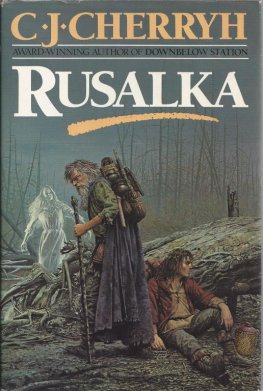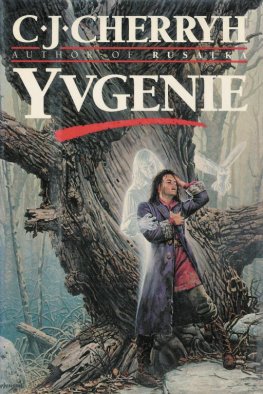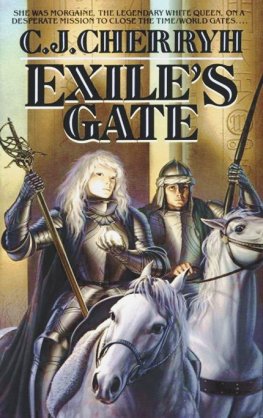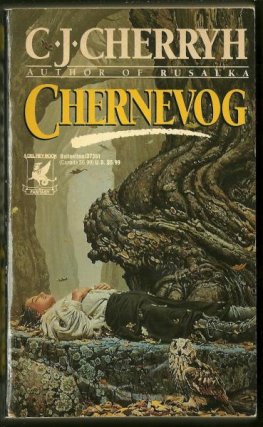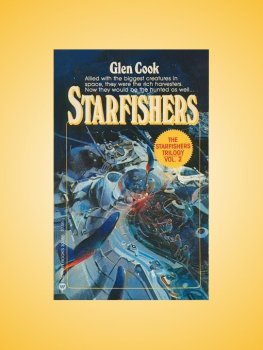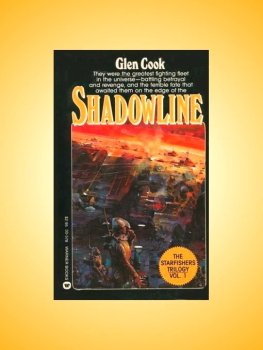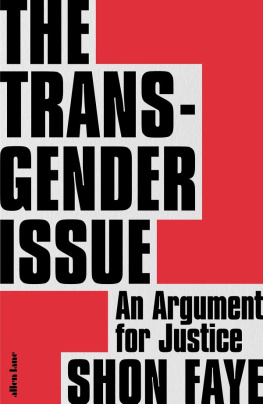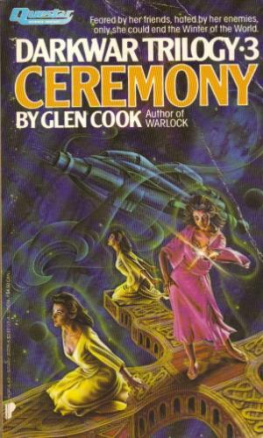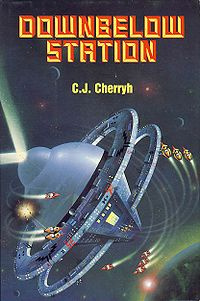C. Cherryh - Shon'jir
Here you can read online C. Cherryh - Shon'jir full text of the book (entire story) in english for free. Download pdf and epub, get meaning, cover and reviews about this ebook. genre: Romance novel. Description of the work, (preface) as well as reviews are available. Best literature library LitArk.com created for fans of good reading and offers a wide selection of genres:
Romance novel
Science fiction
Adventure
Detective
Science
History
Home and family
Prose
Art
Politics
Computer
Non-fiction
Religion
Business
Children
Humor
Choose a favorite category and find really read worthwhile books. Enjoy immersion in the world of imagination, feel the emotions of the characters or learn something new for yourself, make an fascinating discovery.

- Book:Shon'jir
- Author:
- Genre:
- Rating:4 / 5
- Favourites:Add to favourites
- Your mark:
- 80
- 1
- 2
- 3
- 4
- 5
Shon'jir: summary, description and annotation
We offer to read an annotation, description, summary or preface (depends on what the author of the book "Shon'jir" wrote himself). If you haven't found the necessary information about the book — write in the comments, we will try to find it.
Shon'jir — read online for free the complete book (whole text) full work
Below is the text of the book, divided by pages. System saving the place of the last page read, allows you to conveniently read the book "Shon'jir" online for free, without having to search again every time where you left off. Put a bookmark, and you can go to the page where you finished reading at any time.
Font size:
Interval:
Bookmark:
version="1.0" encoding="windows-1252"?>romance_sfC.J.CherryhShon'jir
The Faded Sun Triology Book 2
1978enHaaliFB Tools, VIM, Haali Reader2002-07-29#bookz1.0C. J. Cherryh
Shonjir
Elsie Wollheim... for being Elsie
Chapter One
THE MRI was still sedated. They kept him that way constantly, dazed and bewildered at this place that echoed of human voices and strange machinery.
Sten Duncan came to stand at the mri's bedside as he did twice each day, under the eye of the security officer who stood just outside the windowed partition. He came to see Niun, permitted to do so because he was the only one of all at Kesrith base that knew him. Today there was a hazy awareness in the golden, large-irised eyes. Duncan fancied the look there to be one of reproach.
Niun had lost weight. His golden skin was marked in many places with healing wounds, stark and angry. He had fought and won a battle for life which, fully conscious, he would surely have refused to win; but Niun remained ignorant of the humans who came and went about him, the scientists who, in concert with his physicians, robbed him of dignity.
They were enemies of mankind, the mri. Forty years of war, of ruined worlds and dead numbered by the millions and yet most humans had never seen the enemy. Fewer still had looked upon a mri's living and unveiled face.
They were a beautiful people, tall and slim and golden beneath their black robes: golden manes streaked with bronze, delicate, humanoid features, long, slender hands; their ears had a little tuft of pale down at the tips, and their eyes were brilliant amber, with a nictitating membrane that protected them from dust and glare. The mri were at once humanlike and disturbingly alien. Such also were their minds, that could grasp outsiders' ways and yet steadfastly refused to compromise with them.
In the next room, similarly treated, lay Melein, called she'pan, leader of the mri: a young woman and while Niun was angular and gaunt, a warrior of his kind, Melein was delicate and fine. On their faces both mri were scarred, three fine lines of blue stain slanting across each cheek, from the inner corner of the eye to the outer edge of the cheekbone, marks of meaning no human knew. On Melein's sleeping face, the fine blue lines lent exotic beauty to her bronze-lashed eyes; she seemed too fragile to partake of mri ferocity, or to bear the weight of mri crimes. Those that handled the mri treated her gently, even hushed their voices when they were in the room with her, touched her as little as possible, and that carefully. She seemed less a captive enemy than a lovely, sad child.
It was Niun they chose for their investigations Niun, unquestionably the enemy, who had exacted a heavy price for his taking. He had been stronger from the beginning, his wounds more easily treated; and for all that, it was not officially expected that Niun survive. They called their examinations medical treatments, and entered them so in the records, but in the name of those treatments, Niun had been holographed, scanned inside and out, had yielded tissue samples and sera whatever the investigators desired and more than once Duncan had seen him handled with unfeeling roughness, or left on the table too near waking while humans delayed about their business with him.
Duncan closed his eyes to it, fearing that any protest he made would see him barred from the mri's vicinity entirely. The mri had been kept alive, despite their extensive injuries; they survived; they healed; and Duncan found that of the greatest concern. The mri's personal ethic rejected outsiders, abhorred medicine, refused the pity of their enemy; but in nothing had these two mri been given a choice. They belonged to the scientists that had found the means to prolong their lives. They were not allowed to wake and that too was for the purpose of keeping them alive.
"Niun," Duncan said softly, for the guard outside was momentarily staring elsewhere. He touched the back of Niun's long-fingered hand, below the webbing of the restraint; they kept the mri carefully restrained at all times, for Niun would tear at the wound if he once found the chance: so it was feared. Other captive mri had done so, killing themselves. None had ever been kept alive.
"Niun," he said again, persistent in what had become a twice-daily ritual to let the mri know, if nothing more, that someone remained who could speak his name; to make the mri think, in whatever far place his consciousness wandered; to make some contact with the mri's numbed mind.
Niun's eyes briefly seemed to track and gave it up again, hazing as the membrane went over them.
"It's Duncan," he persisted, and closed his hand forcefully on the mri's. "Niun, it's Duncan.
The membrane retreated; the eyes cleared; the slim fingers jerked, almost closed. Niun stared at him, and Duncan's heart leaped in hope, for it was the first indication the mri had made that he was aware, proof that the mind, the man he knew, was undamaged. Duncan saw the mri's eyes wander through the room, linger at the door, where the guard was visible.
"You are still on Kesrith," Duncan said softly, lest the guard hear and notice them. "You're aboard probe ship Flower, just outside the city. Pay no attention to the man. That is nothing, Niun. It's all right.
Possibly Niun understood; but the amber eyes hazed and closed, and he slipped back into the grip of the drugs, free of pain, free of understanding, free of remembering.
They were the last of their kind, Niun and Melein the last mri, not alone on Kesrith, but anywhere. It was the reason that the scientists would not let them go: it was a chance at the mri enigma that might never, after them, be repeated. The mri had died here on Kesrith, in one night of fire and treachery all, all save these two, who survived as a sad curiosity in the hands of then enemies.
And they had been put there by Duncan, whom they had trusted.
Duncan pressed Niun's unfeeling shoulder and turned away, paused to look through the dark glass partition into the room where Melein lay sleeping. He no longer visited her, not since she had grown stronger. Among mri she would have been holy, untouchable: an outsider did not speak to her directly, but through others. Whatever she endured of loneliness and terror among her enemies was not worse than humiliation. Her enemies she might hate and ignore, slipping into unconsciousness and forgetting; but before him, whose name she knew, who had known her when she was free, she might feel deep shame.
She rested peacefully. Duncan watched the gentle rise and fall of her breathing for a moment, assuring himself that she was well and comfortable, then turned away and opened the door, murmured absent-minded thanks to the guard, who let him out of the restricted section and into the outer corridor.
Duncan ascended to the main level of the crowded probe ship, dodging white-uniformed science techs and blue-uniformed staff, a man out of place in Flower. His own khaki brown was the uniform of the SurTac, Surface Tactical Force. Like the scientific personnel of Flower, he was an expert; his skills, however, were no longer needed on Kesrith or elsewhere. The war was over.
He had become like the mri, obsolete.
He checked out of Flower, a clerical formality. Security knew him well enough, as all humans on Kesrith knew him the human who had lived among mri. He walked out onto the ramp and down, onto the mesh causeway humans flung across the powdery earth of Kesrith.
Nothing grew on the white plain outside, as far as the eye could see. Life was everywhere scant on Kesrith, with its alkali flats, its dead ranges, its few and shallow seas. The world was lit by a red sun named Arain, and by two moons. It was one of six planets in the system, the only one even marginally habitable. The air was thin, cold in shadow and burning hot in the direct rays of Arain; and rains that passed through it left the skin burning and dry. Powdery, caustic dust crept into everything, even the tightest seals, making men miserable and eventually destroying machinery. In most places Kesrith was uninhabitable by humans, save here in the lowland basin about Kesrith's sole city, on the shore of a poisonous sea: one small area where moisture was plentiful, amid geysers and steaming pools, and crusted earth that would not bear a man's weight.
Next pageFont size:
Interval:
Bookmark:
Similar books «Shon'jir»
Look at similar books to Shon'jir. We have selected literature similar in name and meaning in the hope of providing readers with more options to find new, interesting, not yet read works.
Discussion, reviews of the book Shon'jir and just readers' own opinions. Leave your comments, write what you think about the work, its meaning or the main characters. Specify what exactly you liked and what you didn't like, and why you think so.

